Polls show that one of voters' main issues in this election is immigration.
Follow up questions reveal that people are mainly concerned about the effect of immigration on housing and their ability to access services, such as GPs.
So, what is the reality of inward migration and what are the parties promising to do about it?
The latest CSO data shows that almost 80,000 migrants were added to the population in the twelve months before April 2024.
149,000 people migrated into Ireland, and roughly 70,000 left.
It was also the third year in a row where more than 100,000 people arrived here.
Ireland had similarly large influxes in the mid-2000s. However, the population surge now is happening during a housing crisis with stretched public services.
Official data shows that most people coming to Ireland annually come to work and study, and many are actively sought by both employers and government policy.
So far this year, 33,000 new work permits were issued, 19,000 new student visas (with the right to work part-time) while 16,000 people sought asylum.
In addition, an average of 40,000 Ukrainians have entered the country annually since 2022.
The 33,000 work permits issued by the Department of Enterprise Trade & Employment (DETE) so far this year came on top of 70,000 over the previous two years.
According to the CSO, over 90,000 EU and UK migrants, who don’t need work permits, also arrived in the same period.
Notably, there was also a net loss to our population of 5,000 Irish citizens from April 2023 to April this year: 35,000 left, while 30,000 returned.
In the previous two years roughly the same numbers left as returned.
What is the main driver of inward migration?
The biggest driver of immigration is employment and those who come to study and work. In the absence of Irish workers in certain sectors, government policy has been to target migrant workers to fill gaps in the economy.
So far this year, over 11,000 people from India came here on employment permits, almost 4,000 from Brazil, almost 3,000 from the Philippines and just over 1,500 from China.
Almost exactly a year ago, Neale Richmond, the then Minister of State for Business, Employment and Retail, introduced the largest ever expansion the employment permit system, adding 43 more occupations to the employment permit list.
These changes were requested by employers and industry representatives to fill gaps in 'critical skills’ occupations and in general skills areas. Some of roles added to the critical skills were chemical and project engineers, optometrists, meteorologists and commercial managers.
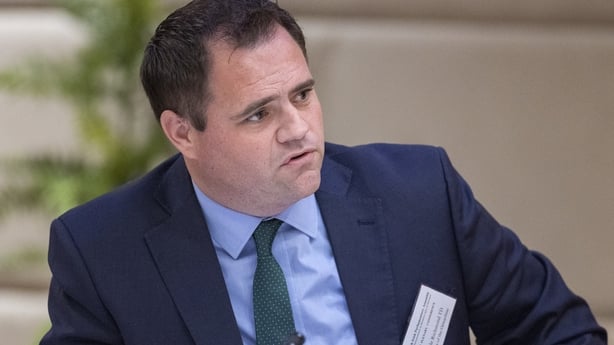
On the general employment permit list were roles in the disability and care sectors such as residential managers, project officers and play therapists, also family support and social care workers. Also added were electricians, butchers and pig farm assistants and managers.
DETE data shows that one third of all migrant workers who arrived this year came to work in the healthcare sector, mainly in our hospitals and nursing homes.
Major hospitals rely on migrants to fill key roles: St James’s sought 281 migrant staff, Cork University Hospital 271, Tallaght Hospital 247 and University Hospital Limerick 214, to give some examples so far this year.
Nursing homes also bring in large numbers. For example, Mowlam Healthcare, a nursing home provider, got permits for 355 foreign staff here this year.
IT and financial services accounted for a further 22% of migrant workers arriving. Food/accommodation services made up 8%, and Construction/Transport 6%.
Significant employers seek hundreds of migrant workers at a time. DETE data shows that so far this year, 680 work permits were issued for to the meat production company, Dawn Meats, while Amazon was issued 508, Google 323 and Ernest and Young 278.
We need your consent to load this flourish contentWe use flourish to manage extra content that can set cookies on your device and collect data about your activity. Please review their details and accept them to load the content.Manage Preferences
Study and work
Under visa rules, non-EU students are entitled to work up to 20 hours a week (and full-time over holiday periods). They make up a large part of the services sector workforce in our cities.
So far this year, the Department of Justice data issued 19,000 new student visas.
In total, there are 62,000 non-European Economic Area (EEA) and UK migrants currently in Ireland on student immigration permits. (The European Economic Area refers to the 27 EU member states, plus Norway, Iceland and Liechtenstein.)
Many of them are enrolled in our universities. The Higher Education Authority indicates there were 25,000 non-EU students in our universities last year, making up 11% of the student body (rising to 15% when you include EU students).
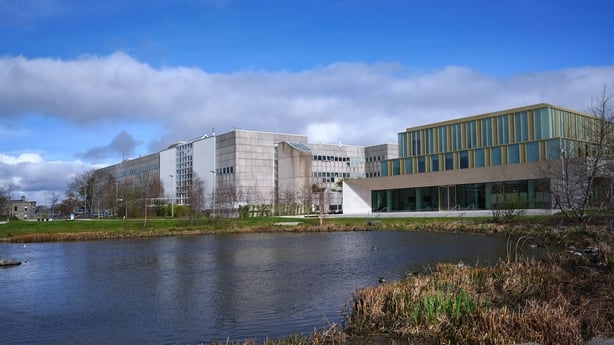
University leaders who have long decried insufficient State funding are now heavily reliant on such students for income.
Non-EU undergraduate fees at UCD this year ranged from €21,500-€27,720, that compared to €2,245 for Irish citizens. This year’s Royal College of Surgeons fees for non-EU undergraduate medical students are €60,000 per annum.
Migrant students often also seek on-campus student accommodation, which is another income stream for Irish universities.
Beneficiaries of Temporary Protection (BoTP) and Asylum Seekers
The other main reason migrants come to Ireland is to seek temporary protection and political asylum.
CSO data shows that 82,000 Ukrainians are estimated to be living here. This is out of 109,566 Ukrainians who were given temporary protection in Ireland since March 2022.
They are widely dispersed across Ireland, according the CSO statistics.
Separately, according to the International Protection Office, 16,641 people have applied for asylum in the year to October.
This is up from roughly 2,600 asylum applicants in 2021 and over 13,000 in 2022 and 2023.
Among the reasons given by the outgoing government for the increase, was the effect of UK Conservative government’s ‘Rwanda policy.’ Under it, certain asylum applicants in the UK were to be sent to Rwanda while they pursue their claims.
The policy was ditched by the new UK Labour government earlier this year, so it is too soon to say if the trend will reverse.
Why is it an election issue?
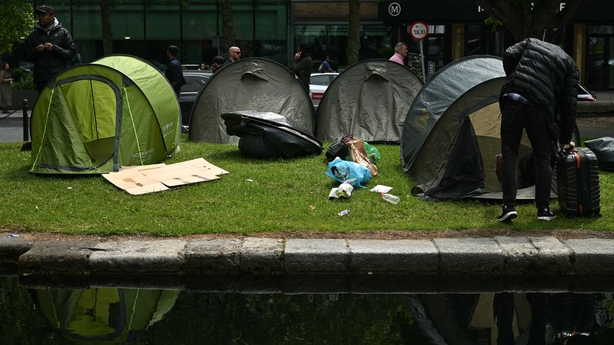
The main reason migration is an issue for voters is that this change in our population comes at a time of increased competition for housing and public services. Migrants contribute to the economy and society, but they do also need to access the same services as Irish-born citizens. To coin a phrase, "economies need workers, while societies get people."
However, the location, local impact on services, and cost of accommodation, specifically for asylum seekers or Ukrainian refugees has also become a constituency issue for many candidates nationwide.
In the past three years, approximately 60% of all migrant workers with work permits came to the capital and the neighbouring counties of Meath and Kildare, with 15-20% going to the other cities.
While urban centres and their hinterlands are the top destinations for work and study, they also have the greatest competition for housing and access to health services and schools.
With fewer employment rights, a high-cost and insecure rental market - and having often taken financial or personal risks to get here - it is perhaps not surprising migrants there end up disproportionately represented in homeless and emergency accommodation services.
According to the latest available data, Irish citizens make up 53% of those in emergency accommodation. Some 22% come from the UK or EEA states, while 25% from countries outside the EEA and UK.
The vast majority of emergency accommodation is provided by local authorities in our cities.
Such accommodation is separate to that provided to asylum seekers which in some communities have triggered protests, concerns about shortages in local services, and arson attacks in multiple cases.
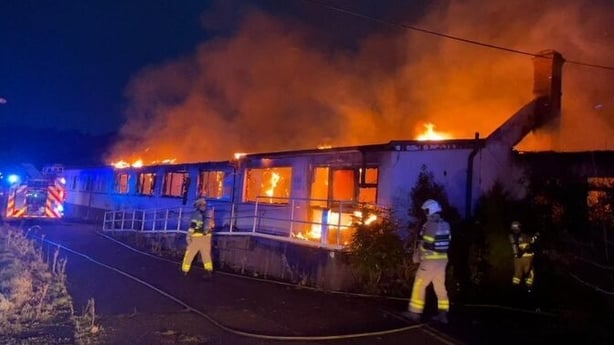
The total number of asylum applicants currently in State-provided accommodation is 32,600, almost 9,000 of whom are children. Many of them are living in centres or private hotels contracted for the purpose of migrant accommodation in towns around the country.
An additional 2,885 asylum applicants are homeless and waiting for accommodation, according to the International Protection Accommodation Service. Most of them are living in tents. It should be noted that not all asylum applicants rely on State-provided accommodation. Applicants are entitled to work after six months and many manage to pay their way once they are working.
According to the Department of Integration figures, the cost of accommodating to asylum seekers, through funding private providers, was €652m last year, up from €354m in 2022.
In addition, the State paid €1.5bn to commercial providers to accommodate Ukrainian refugees last year.
In total last year, the State spent approximately €2.1bn housing asylum seekers and Ukrainian refugees.
Parties’ pledges
None of the parties are forecasting or promising fewer overall migrants coming to Ireland.
Fine Gael and Fianna Fáil for example, explicitly seek to expand the use of migrant workers as an economic necessity, while Sinn Féin and centre-left parties - Labour and the Social Democrats - also acknowledge this and want to improved rights for migrant workers.
None of the parties can realistically promise fewer asylum seekers arriving here, but several aim to process and deport them quicker if they fail the application process.
They also want to impose heftier fines on airlines and carriers bringing them here without documentation.
All the main parties speak of more State provision of International Protection Accommodation Service (IPAS) centres, while moving away from a reliance on private providers for accommodation: although they differ on how soon they want this done.
They also pledge improved communications and support for communities hosting asylum seekers.
The outgoing government parties
On migrant workers, Fine Gael says it will create a "fast-track" visa option to speed up the employment permit system and streamline it. It will prioritise skills-based migration and link migration policy with education and promote integration and anti-discrimination programmes.
It also pledges to speed up the processing of asylum seekers with the introduction of "legally binding timeframes" in which claims must be processed. It says it will restrict the freedom of movement of applicants, while their claims are being processed, and strengthen border security.
On accommodating asylum seekers, Fine Gael says it will end the emergency use of hotels, and develop state facilities. Fine Gael also pledge that asylum seekers will be required to contribute towards their accommodation costs.
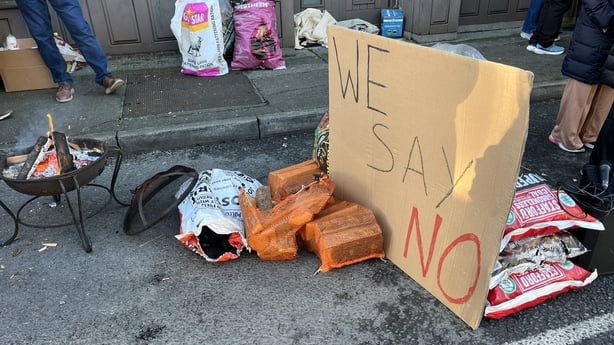
It promises to improve public services and communication in communities where accommodation centres are located. It also says that it won’t end the use of private providers of accommodation, as part of the Direct Provision system in the short term.
Fianna Fail also pledges to make it easier to employ more migrant workers through a more efficient work permit system. It will also expand work permits for the retail, hospitality, care-work and construction sectors.
They say they’ll set up a new "Department of Domestic Affairs - Roinn na Gnóthaí Náisiúnta", to deal with all migration issues including border control, integration, visas and citizenship.
It also promises a faster and more effective International Protection process, along with a punitive approach to any misuse of it. For example, it wants to expedite processing of people coming from designated "safe countries", those who arrive with false documents, or without any, and those with a criminal conviction or who have crossed borders illegally to enter Ireland.
It promises that these claimants will not be authorised to legally enter the State and "will be accommodated in dedicated locations".
Fianna Fáil also pledges to raise fines on airlines and other carriers who transport passengers without documentation to €10,000. It wants a special fund for communities who host asylum seekers and refugees and pledges better services there.
The Green Party also want a new single agency for asylum and integration, more support for communities hosting refugees and asylum applicants, a new strategy to reduce reliance on private providers of accommodation, and better longer-term planning.
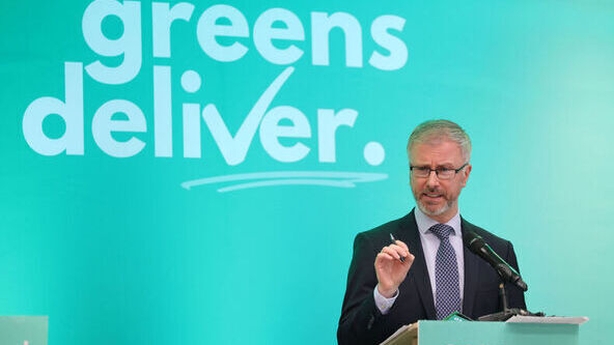
The outgoing opposition parties
Sinn Féin too, wants a new single agency, which it proposes to call the ‘Immigration Management Agency’, under the Department of Justice, to oversee immigration.
It also wants to introduce a registration system for anyone travelling here, it says to enable better service planning and law enforcement. It says staffing across the system would be trebled.
The main opposition party is also pledging that new IPAS centres will not be placed in working class communities, which are "already under severe pressure" for services, but in affluent ones. It says it will remove ‘the two-tier system’ of asylum, bringing an end to the status of Ukrainians as Temporary Protection beneficiaries.
Labour also wants a new single agency for migration issues and integration, promising a ‘National Action Plan against Racism’ and to pass hate speech legislation.
They pledge to improve the employment permit system by allowing what they describe as "vulnerable migrant workers" to change employers after 12 months.
They also target potential abuse of the student visas system, pledging to regularly inspect all recognised colleges and schools that sponsor student visas.
The Social Democrats are also saying it too would expand migrant workers’ rights, allowing people on general employment permits the right to change employer after two years, and give them family reunification rights.
They want to quadruple staff across the immigration services, establish a new Immigration Court and a "national referral system" to encourage victims to report human traffickers. They also say they will improve integration and support the education and training of refugees, so they can better contribute to the economy.
With a new single Border Agency on asylum and integration, Aontú want the island of Ireland to be treated as a single unit for immigration, with a "sea border" between the UK and Ireland, and staff at airports and ports in Northern Ireland.
It says the Border Agency will process every asylum application within 6 months and will effectively enforce deportation orders. It will refuse entry to applicants who have deliberately destroyed travel documents or have a criminal record. Aontú also pledges to provide immediate investment in public services in towns hosting migrants and will re-instate the application of planning laws for asylum accommodation.
The Independent Ireland party say they will reduce "bureaucratic hurdles" for small and medium enterprises who cannot get local workers to hire migrant workers.
To do this, they will streamline and expedite all work visa applications so migrant workers can "meet the human resource requirements of the Irish economy".
Amongst their detailed polices on toughening the asylum process, they say they will set strict timelines for decisions on international applicants’ claims.
They will also oblige IPAS centres to "follow the same planning regulations" as others and require airlines to provide scans of passports presented pre-flight to identify people who destroy or lose their identity documents.
By contrast, People Before Profit, say they oppose deportations and are against a "Fortress Europe" policy. They say they will better integrate asylum seekers and give them voting rights.
They also pledge an end the direct provision system, whereby asylum seekers get basic accommodation and a small allowance instead of welfare benefits.






